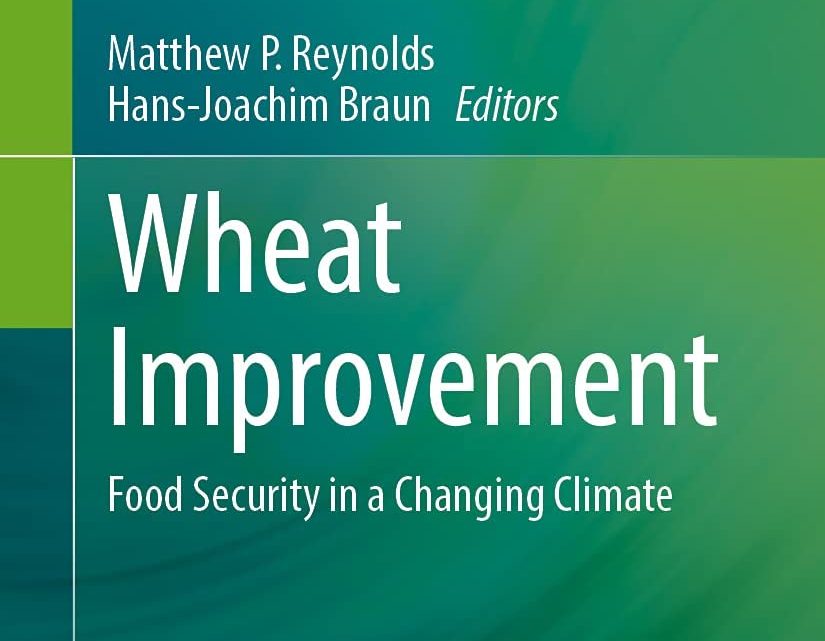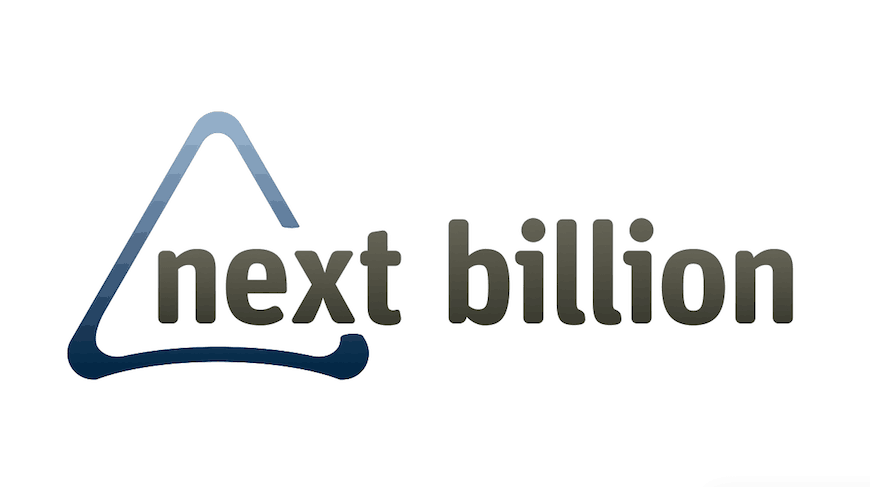From 11 -22 November 2024, global leaders convened in Baku, Azerbaijan for COP29. Dubbed the finance COP, critical intersections of climate change, food systems, and sustainable development took center stage. This year’s conference reflected both the progress and the persistent challenges in addressing the climate crisis, marking a critical moment in the climate negotiations.
Food Systems at the Forefront
COP29 highlighted the undeniable importance of transforming global food systems as a cornerstone of effective climate action. Initiatives like the Harmoniya platform and the Declaration on Methane from Organic Waste shows the global community’s recognition of agriculture as both a contributor to and a solution for greenhouse gas emissions. However, the broader discussions were a reminder of the gap between ambition and implementation, with financial commitments and concrete action plans often falling short.
While food systems gained visibility, the debates often revealed tensions, particularly on issues like global stocktake outcomes, financing, and the integration of mitigation and adaptation strategies. Despite these challenges, the coordination and cohesion within the food systems community were commendable, reflecting a collective resolve to carry the momentum forward.
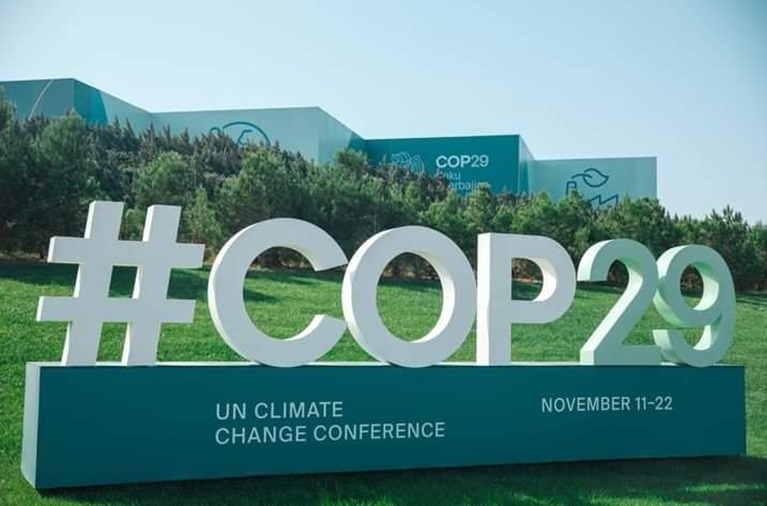
Key Outcomes and Agreements
- Climate Finance and the NCQG
A central focus of COP29 was the New Collective Quantified Goal on climate finance (NCQG). While the actual need for climate finance is estimated at $1.3 trillion annually, the outcomes of COP29 fell short, with only $300 billion explicitly committed to developing countries. The inclusion of voluntary contributions from non-traditional donors like China and the UAE added nuance but failed to resolve the broader financial gaps.
- Mitigation Work Programme
Discussions on the Mitigation Work Programme highlighted fundamental disagreements over whether the program should prioritize specific actions linked to the global stocktake. While some nations sought prescriptive approaches, others emphasized the voluntary nature of nationally determined contributions (NDCs). These debates highlight the complexities of aligning global and national climate priorities.
- Adaptation and Resilience
The global goal on adaptation progressed with the launch of the Baku Adaptation Roadmap, though challenges remain in refining and agreeing upon adaptation-related indicators. Meanwhile, the Sharm El Sheikh Joint Work on Agriculture and Food Security moved forward with plans for an online portal to share best practices and tools for climate action.
- Collaborative Frameworks
The conference saw advancements in collaborative mechanisms such as the Paris Agreement Crediting Mechanism under Article 6, which aims to enhance transparency and accountability in carbon markets. Platforms like Harmoniya and the Global Nitrous Oxide Hub were also launched to streamline efforts in addressing specific climate challenges.
CIMMYT at COP29
Amid these broader discussions, CIMMYT came out to strongly champion for the alignment of scientific innovation with the practical challenges of transforming food systems. Sieglinde Snapp and Tek Sapkota represented CIMMYT at high-level side events, highlighting the critical need to leverage research to tackle climate challenges. Their contributions focused on developing actionable pathways to bridge the persistent gap between ambitious goals and effective implementation.
Participation in high-level panel discussions
Date: November 12, 2024
Event: High-Level Panel on Sustainable Agriculture
Tek Sapkota shared CIMMYT’s efforts in advancing food systems, climate resilience, and environmental sustainability, aligning with the UAE COP28 Declaration on sustainable agriculture. The event featured remarks from distinguished leaders, including H.E. President Taye Atske Selassie of Ethiopia, H.E. Prime Minister Mette Frederiksen of Denmark, and H.E. Amna Al Dahak of the United Arab Emirates among other world leaders.
Date: November 18, 2024
Event: Making Agriculture Smart by Going Wild
Sieglinde Snapp was part of panel discussions chaired by the United Kingdom Nature minister to discuss leveraging wild crop relatives and underutilized species to enhance agricultural resilience against climate risks. She highlighted CIMMYT’s efforts towards biodiversity in achieving food security.
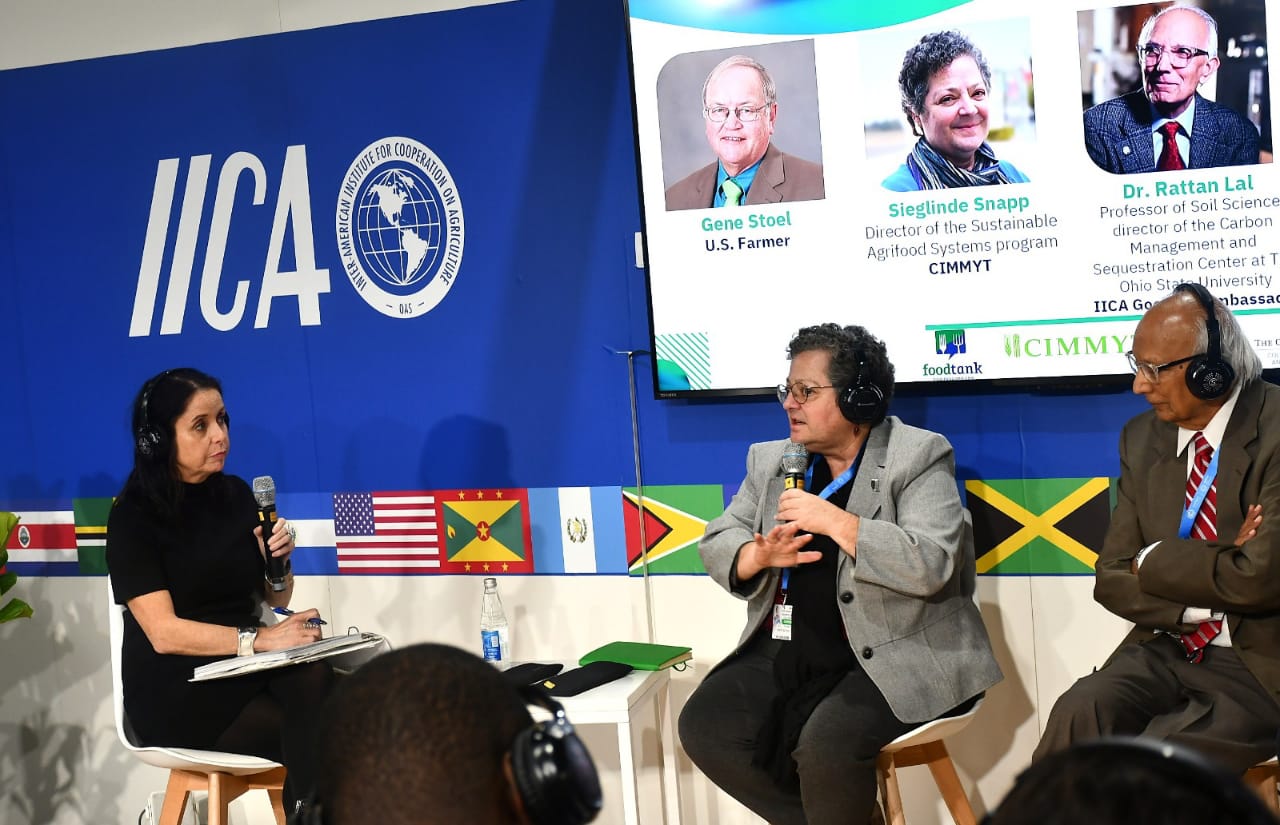
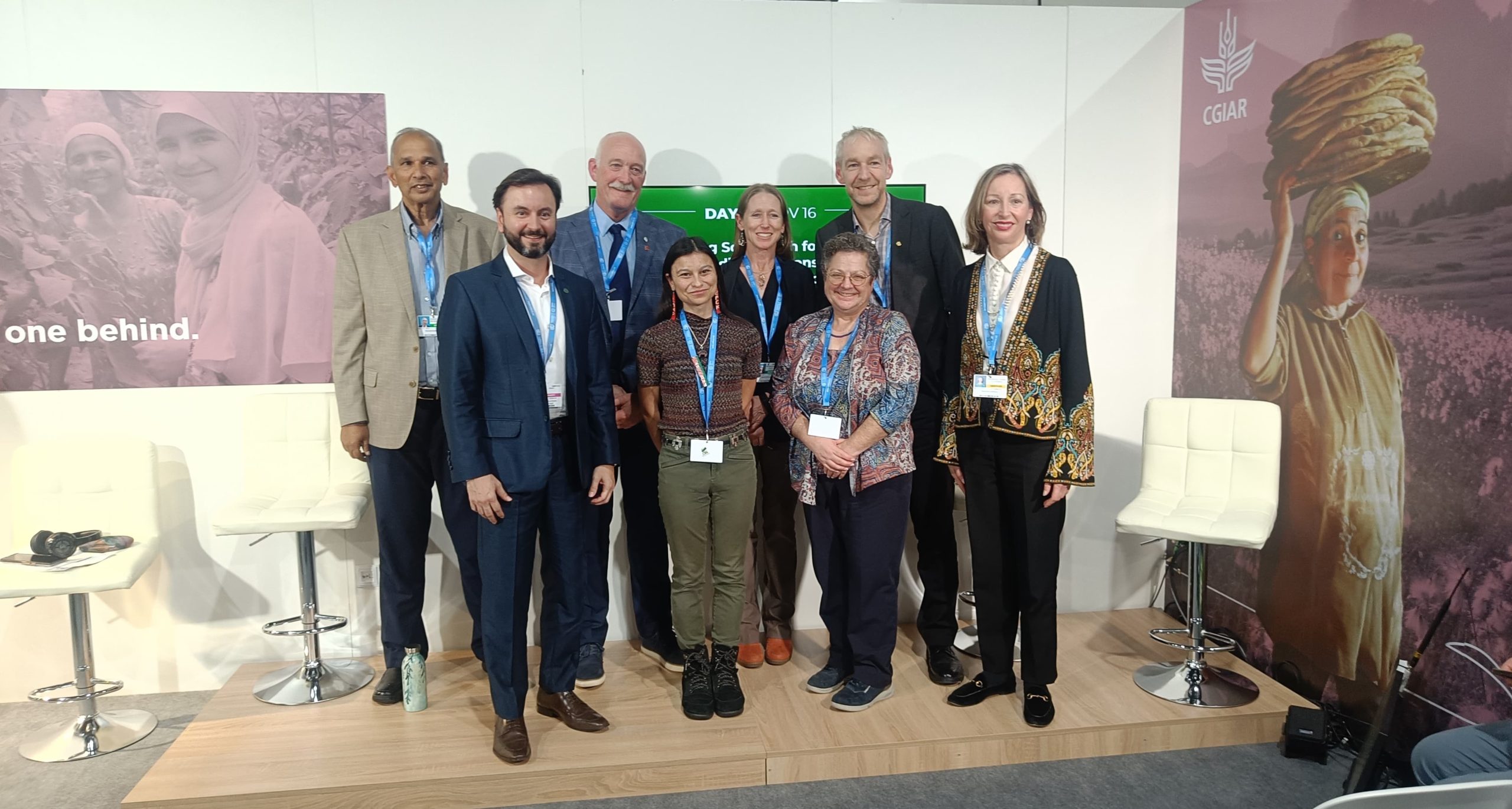
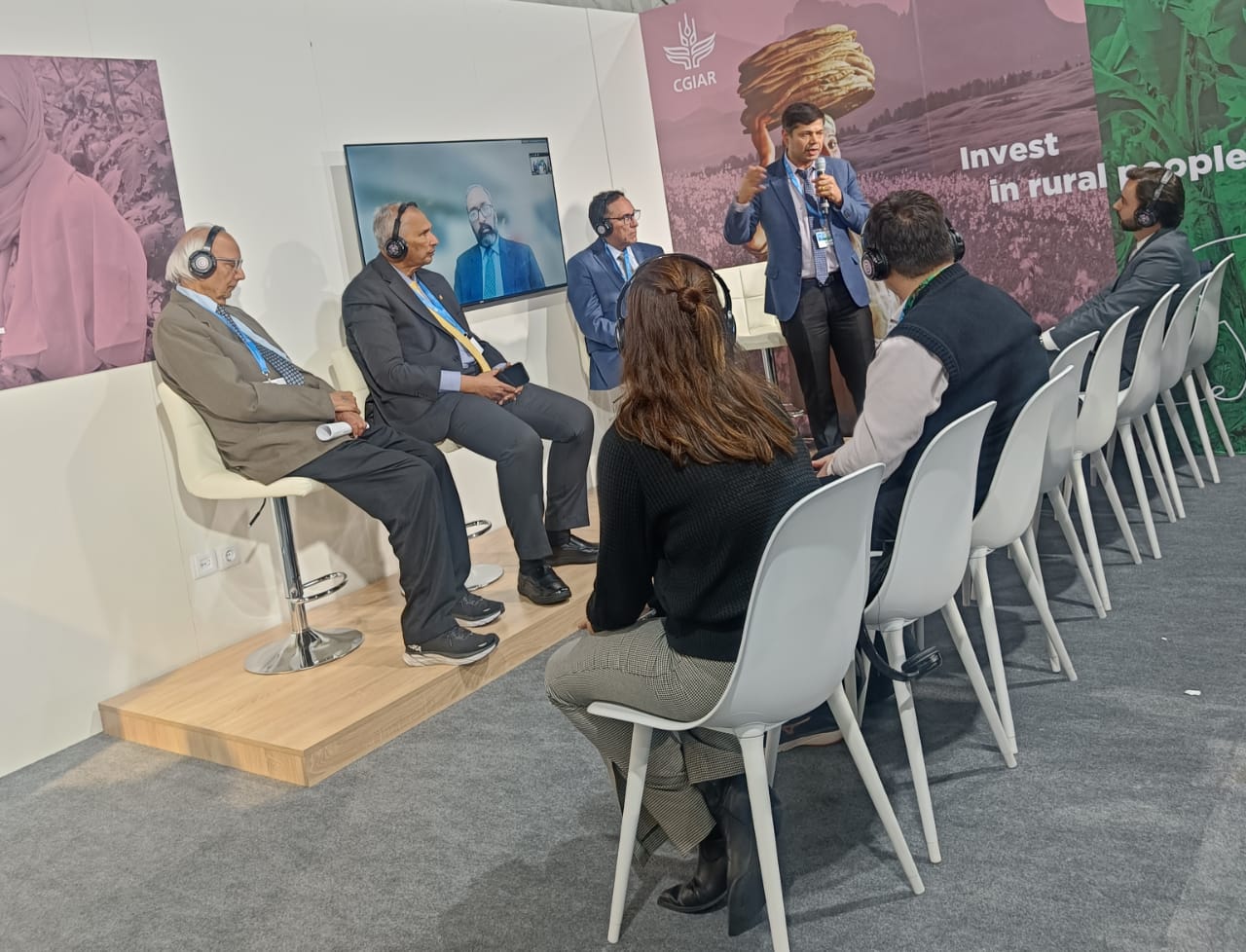
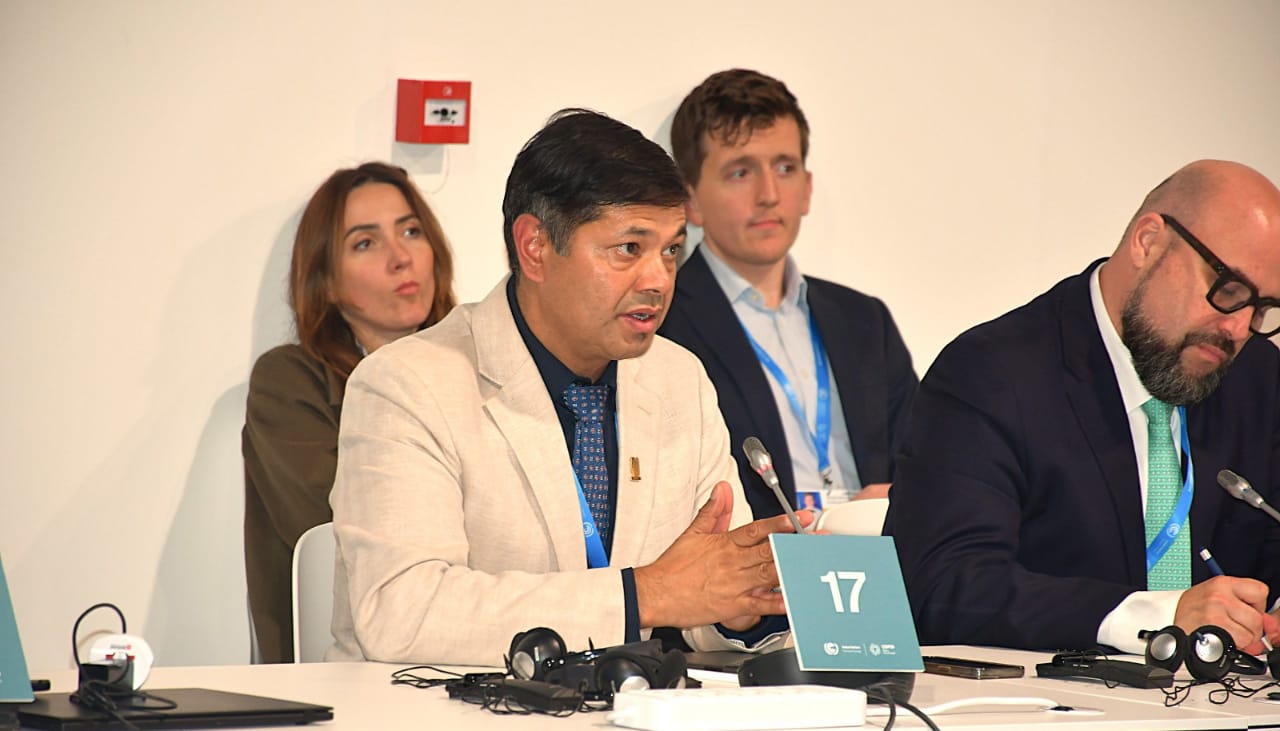
Other events include:
- Scaling Innovations for Greenhouse Gas Mitigation
Date: November 12, 2024
Presented CIMMYT’s research on precision agriculture, showcasing strategies for leveraging site-specific nutrient management to reduce greenhouse gas emissions while increasing food production and supporting food security. (Link recording)
- Pre-COP30 Discussions on Fertilizer Innovations
Date: November 14, 2024
Highlighted innovative technologies in fertilizer production and management as part of technological breakthrough to reduce GHG emissions from agricultural sectors. (Link recording)
- Partnerships for Soil Health and Agricultural Resilience
Date: November 15, 2024
Explored the role of public-private partnerships in advancing soil health and resilience. The discussion highlighted innovative soil management technologies that conserve nitrogen, preserve soil organic carbon, and promote climate-smart agriculture.
- Enhancing Soil Health for Climate Action
Date: November 16, 2024
Addressed practical strategies for improving soil health to mitigate climate change and enhance agricultural sustainability. (Link recording)
- CGIAR Panel Discussion on Innovation in Soil Fertility Management
Date: November 18, 2024
Shared insights on advancing soil fertility management through cutting-edge innovations that balance productivity and sustainability. (Link recording)
- Global Nitrous Oxide Hub Launch
Date: November 19, 2024
Discussed the importance of reducing nitrous oxide emissions in agriculture, aligning with global efforts to mitigate climate change.
- VACS Networking Events
Date: November 19, 2024
Discussions highlighting public-private-civil society partnerships for sustaining agricultural resilience and advancing the VACS agenda.
- Launch of the 2024 Breakthrough Agenda Report
Date: November 20, 2024
(Link recording)
Non-Negotiated Outcomes
Beyond formal agreements, COP29 featured significant declarations and initiatives that highlight emerging priorities:
- Reducing Methane Emissions: The Declaration on Methane from Organic Waste aims to align waste management with 1.5°C targets, garnering commitments from 33 countries.
- Urban Agriculture and Climate Resilience: The Multisectoral Action Pathways Declaration emphasized the role of urban agriculture in fostering resilient cities.
- Human Development for Climate Resilience: The Baku Initiative for Climate Finance, Investment, and Trade (BICFIT) Dialogue, launched at COP29, integrates climate finance, investment, and trade to drive sustainable development and support vulnerable populations. It fosters global collaboration and aligns climate action with economic resilience.
The Road Ahead: From Baku to Belém
As the world prepares for COP30 in Belém, Brazil, the outcomes of COP29 provide both lessons and opportunities. CIMMYT, aligned with the CGIAR 2030 Research and Innovation Strategy, is uniquely positioned to drive transformative action in food systems.
Key priorities for COP 30 include:
- Strengthening Finance Mechanisms: Addressing the financial gaps in adaptation and mitigation efforts, particularly for low-income nations.
- Scaling Collaborative Initiatives: Building on platforms like Harmoniya to foster cross-sectoral and international collaboration.
- Embedding Food Systems in Climate Policy: Ensuring that agriculture and food systems are integral to NDCs and national adaptation plans.
- Advancing Science for Action: Driving actionable research to close gaps in implementation, particularly in nutrient management and biodiversity conservation.
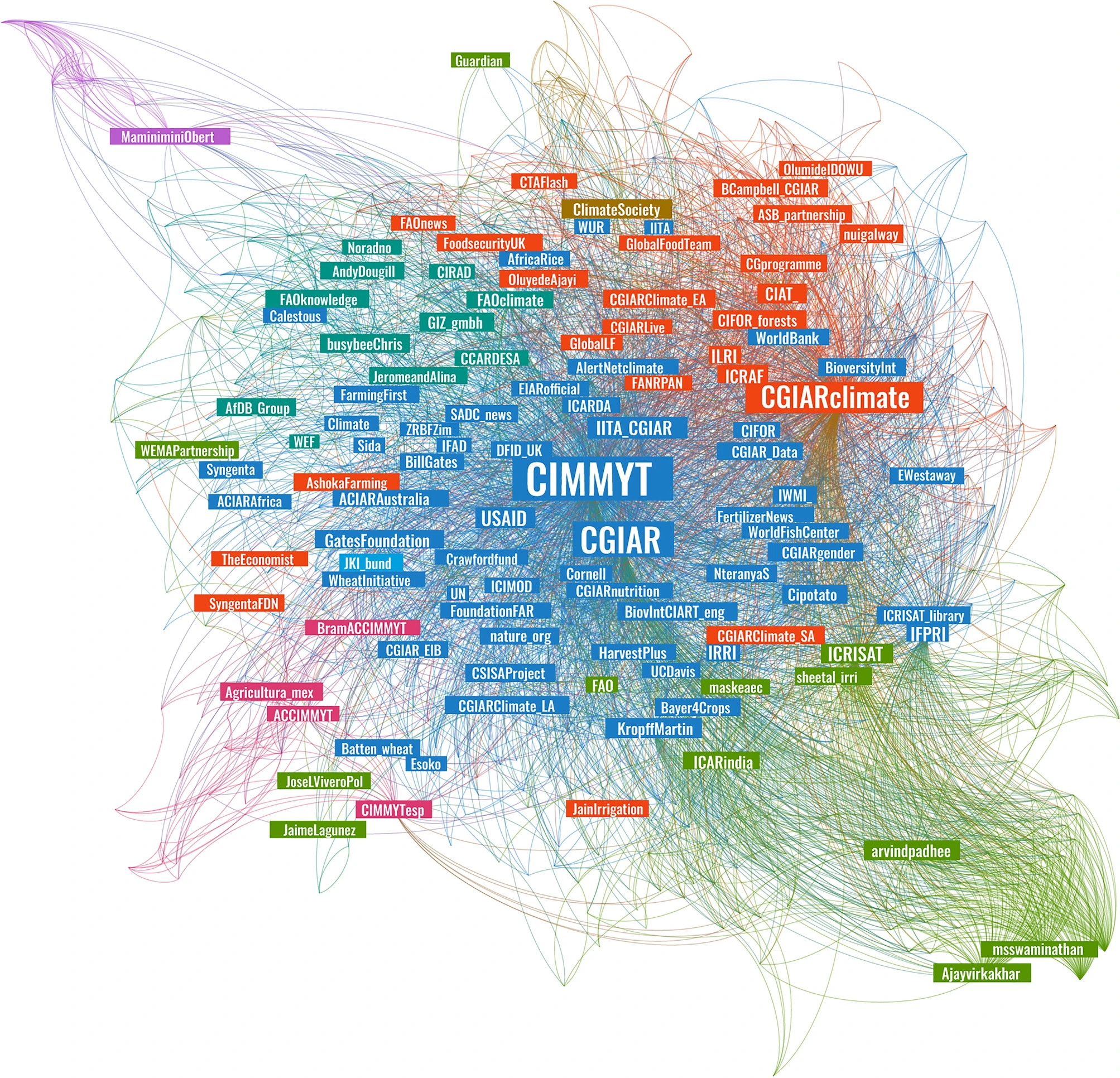
 Climate adaptation and mitigation
Climate adaptation and mitigation 